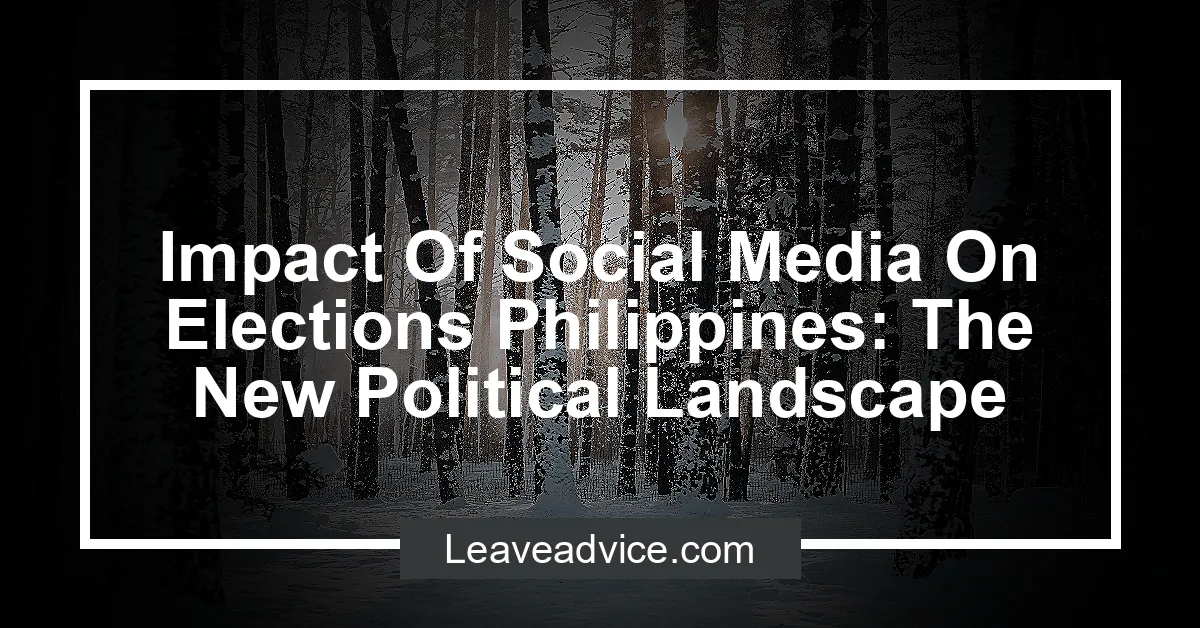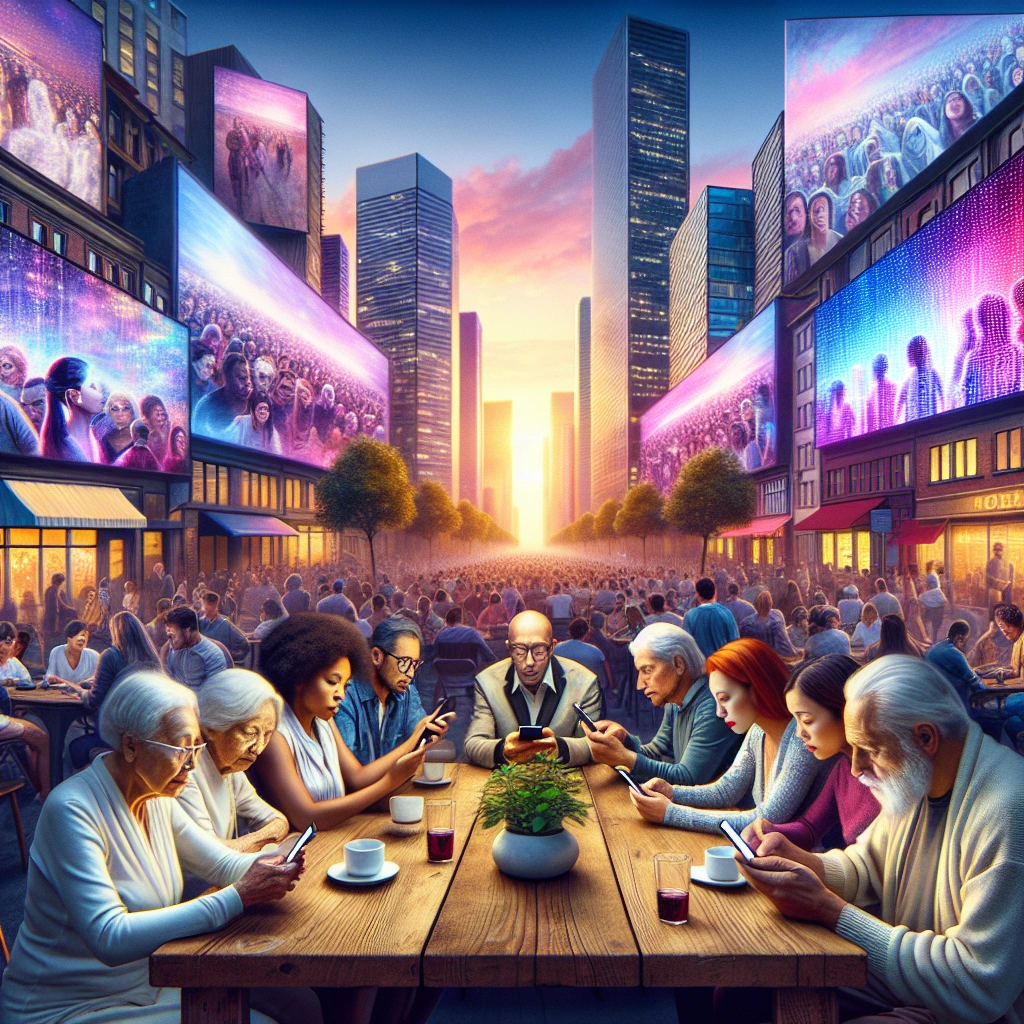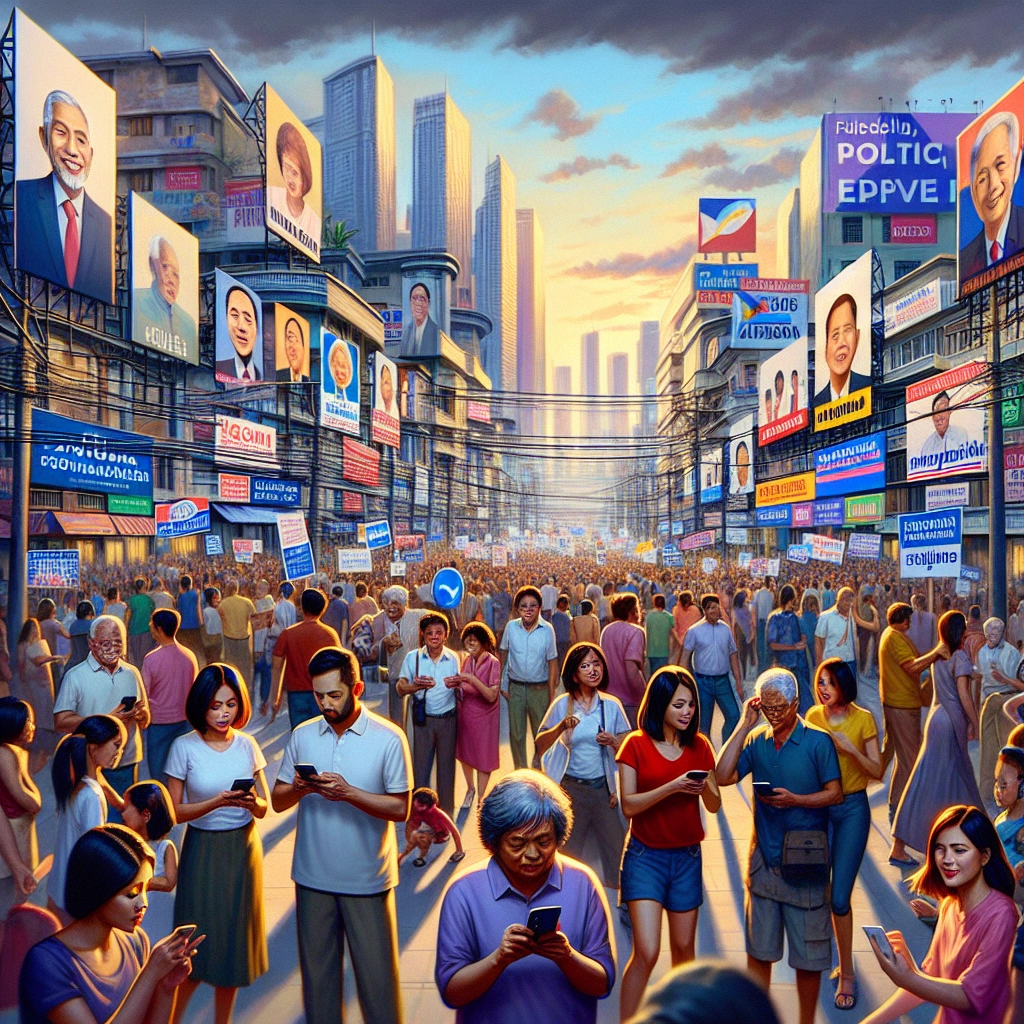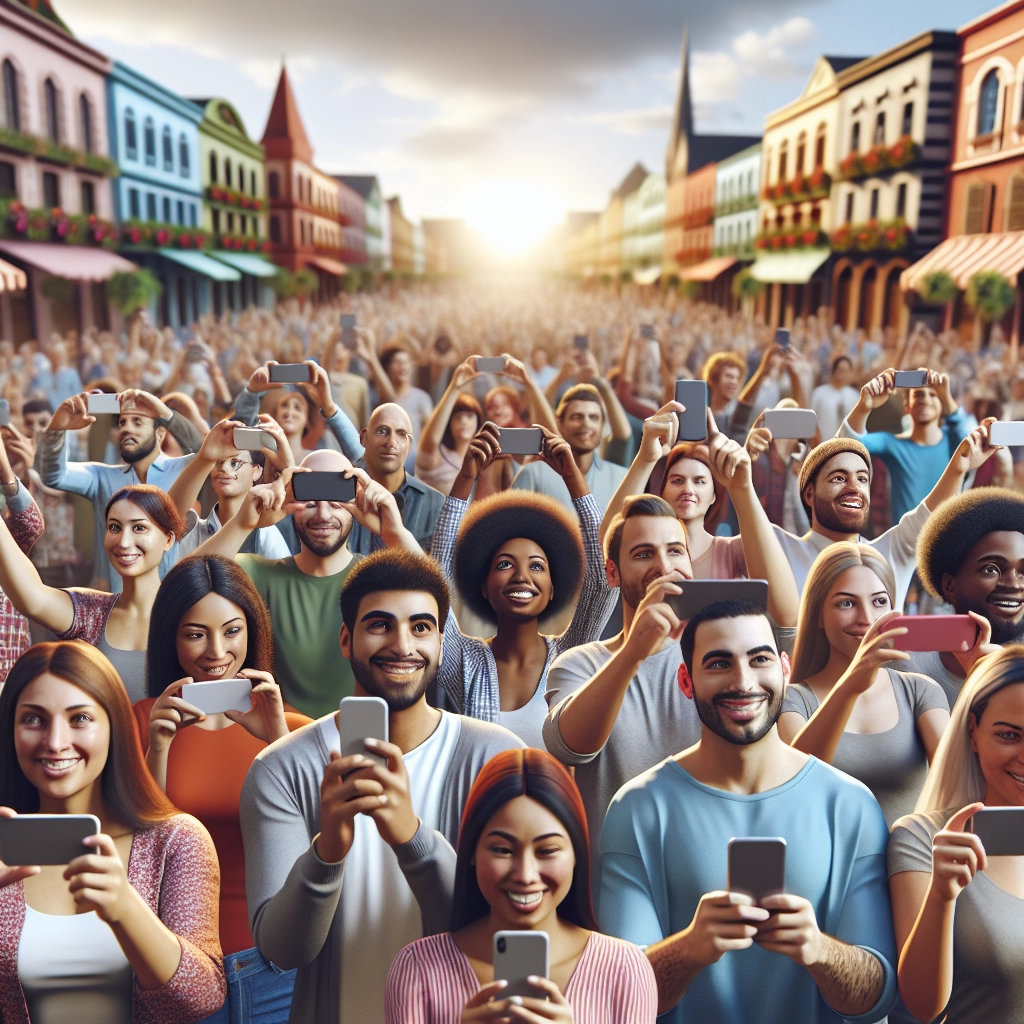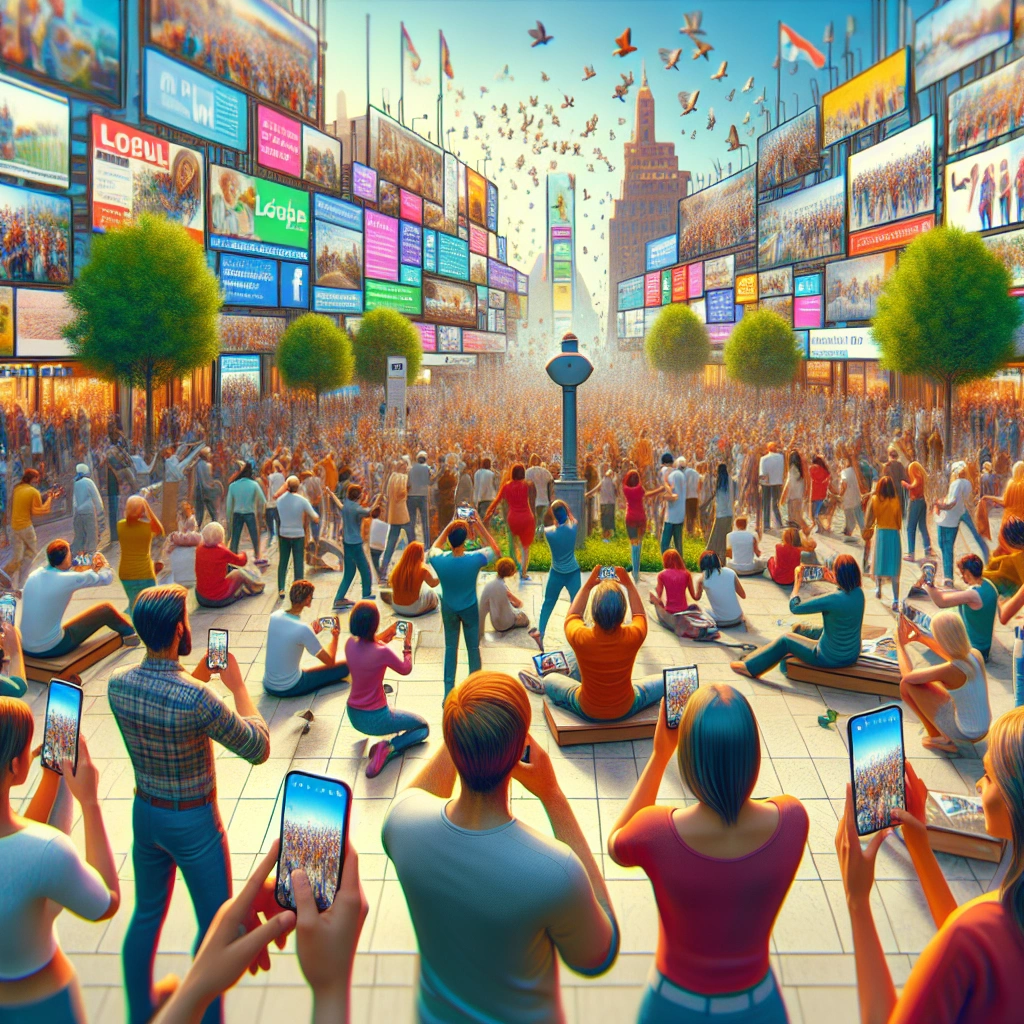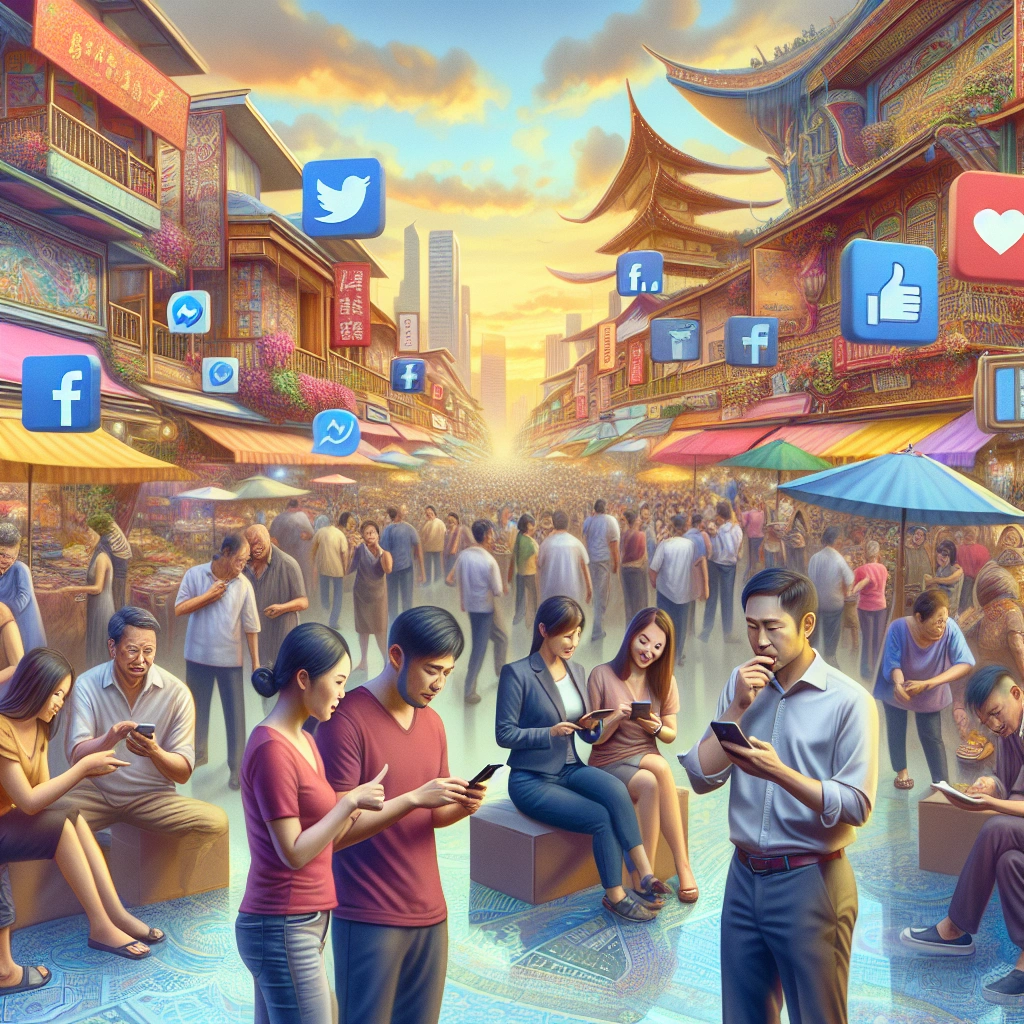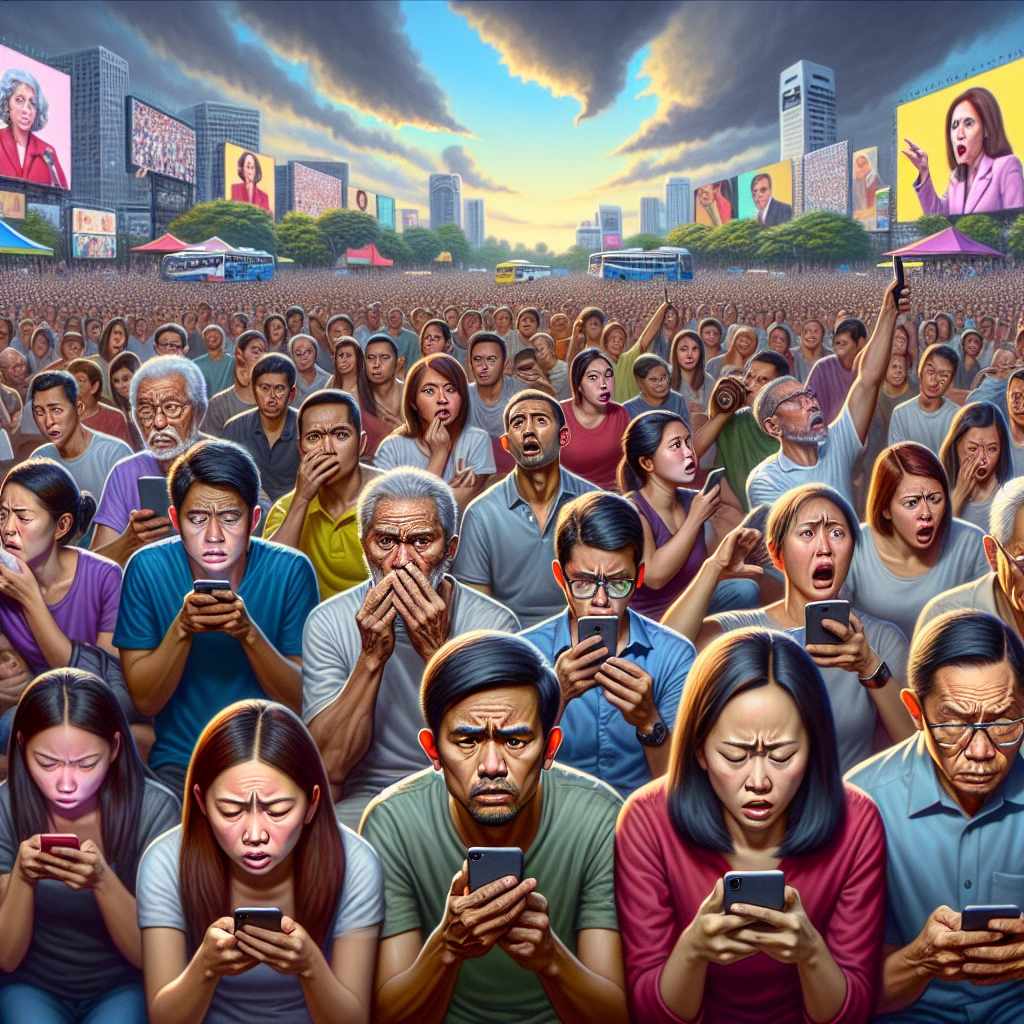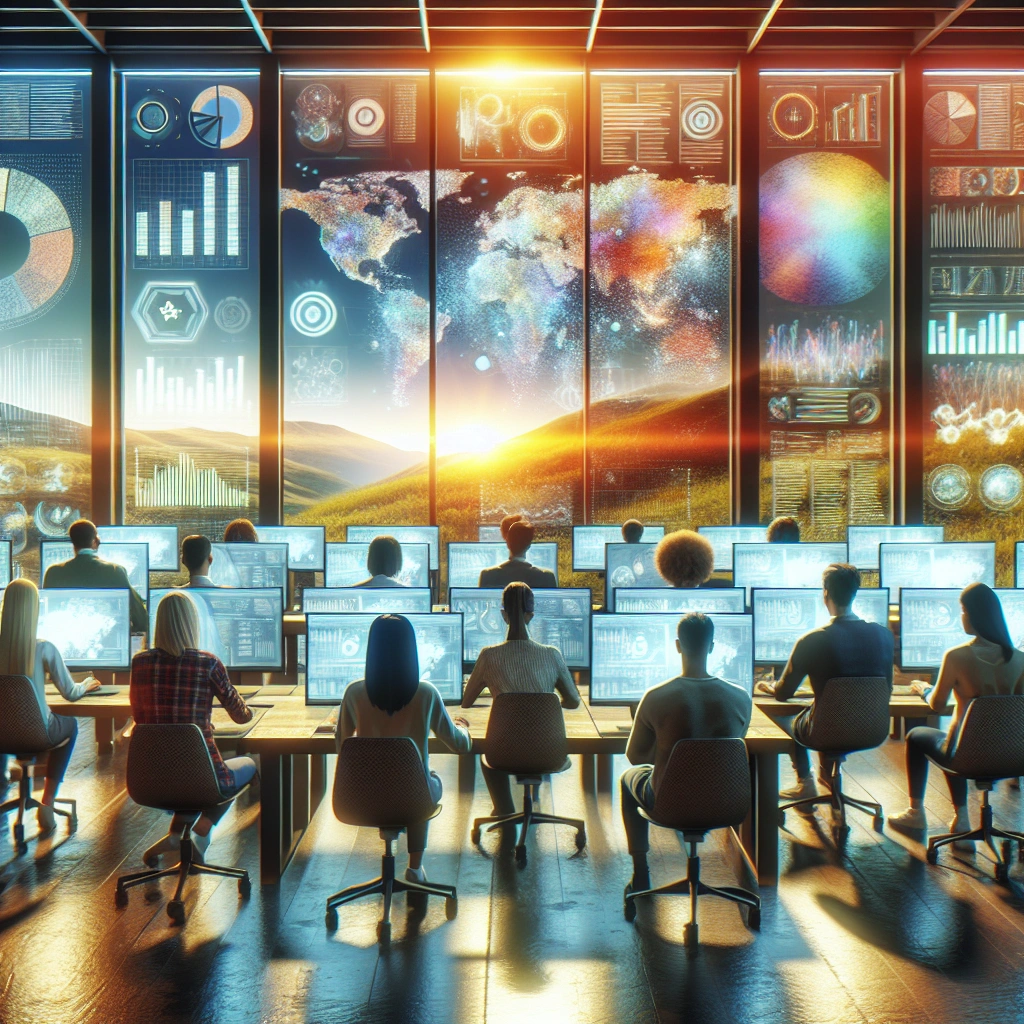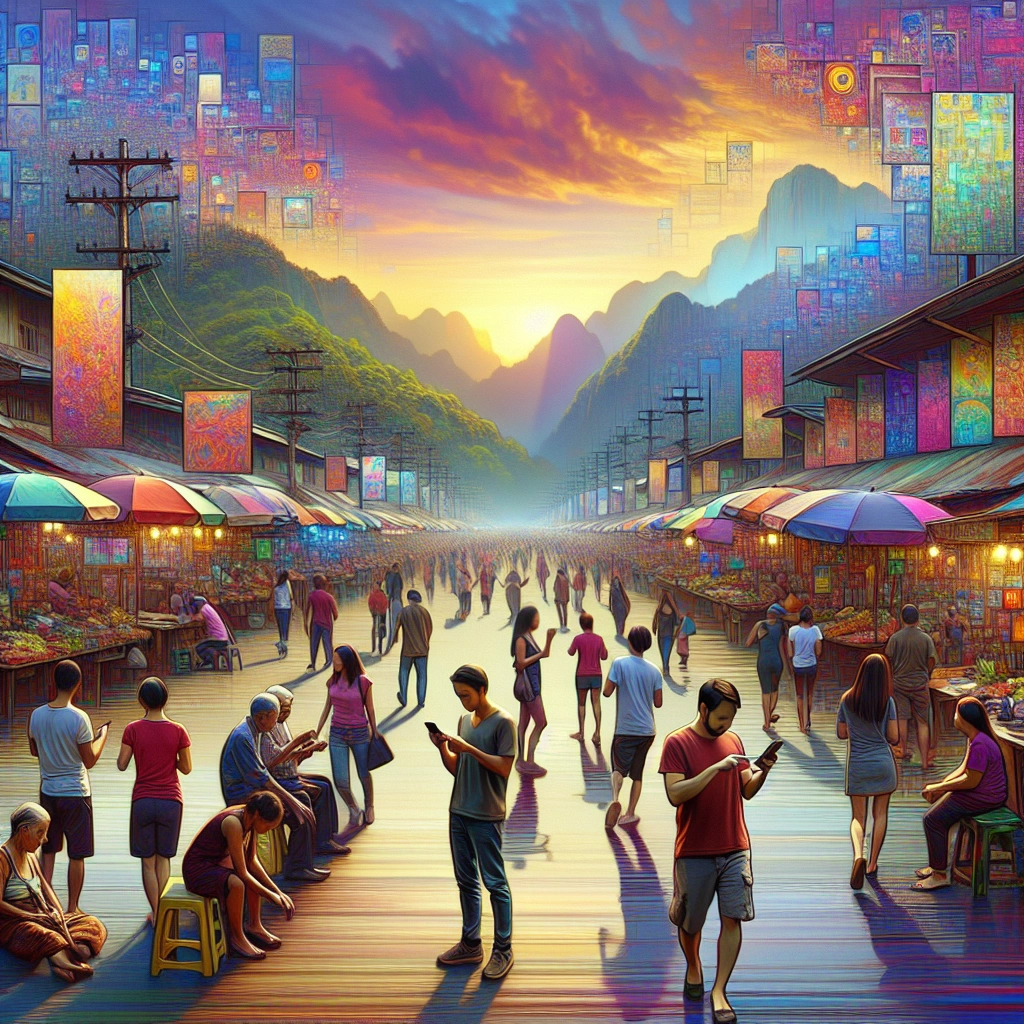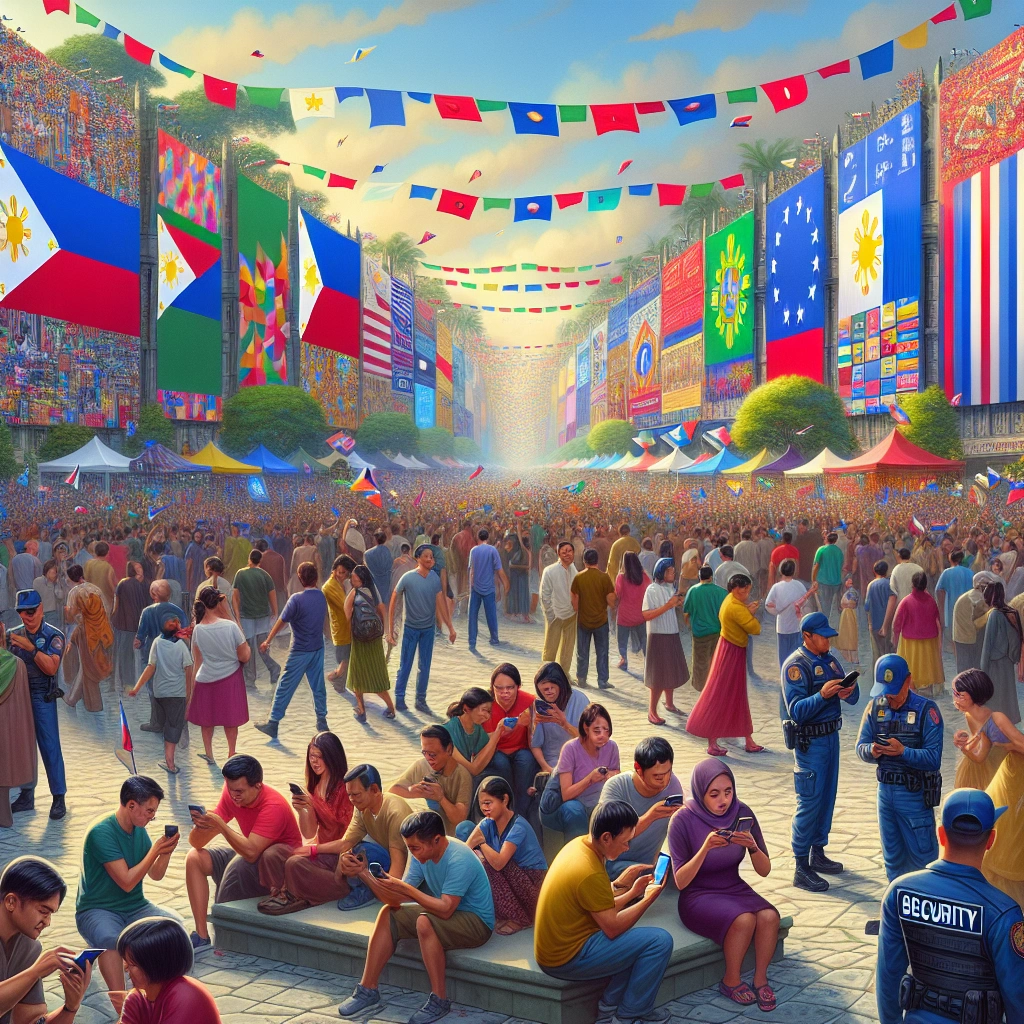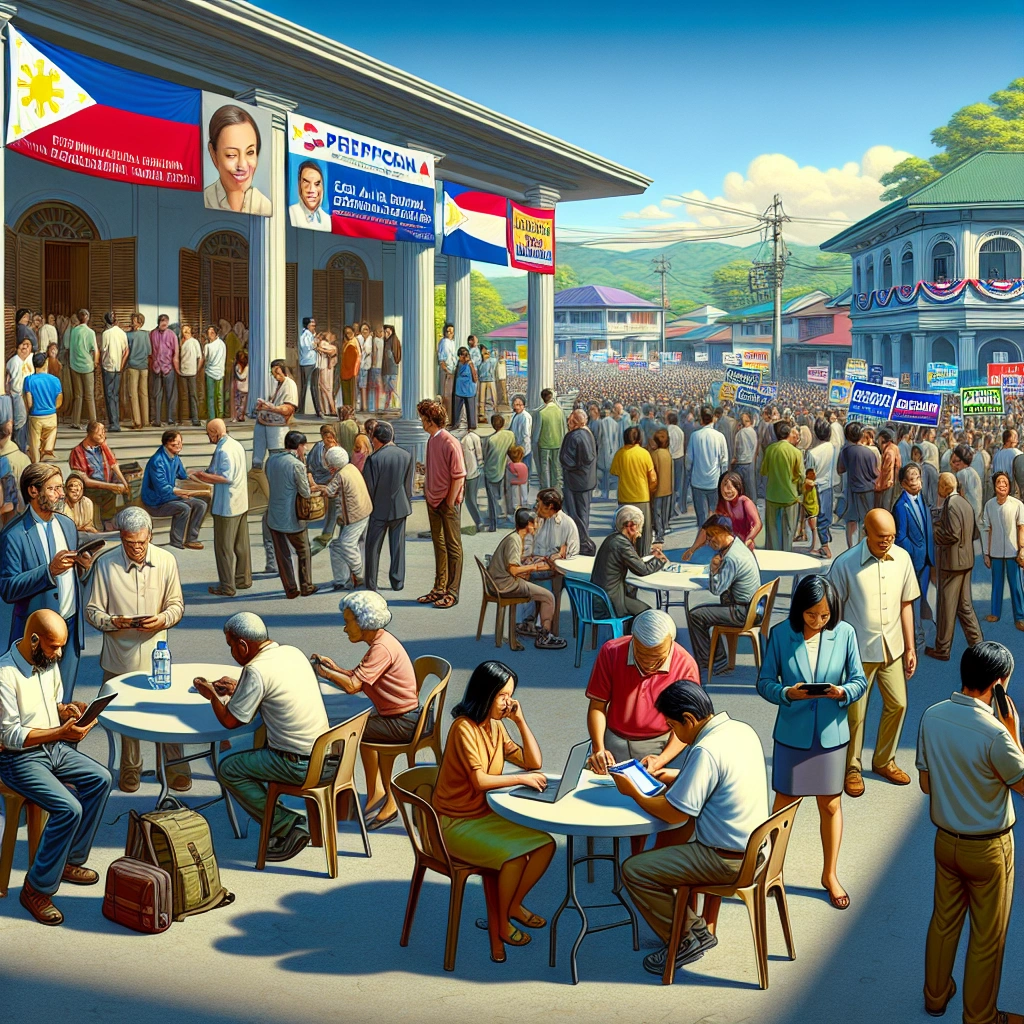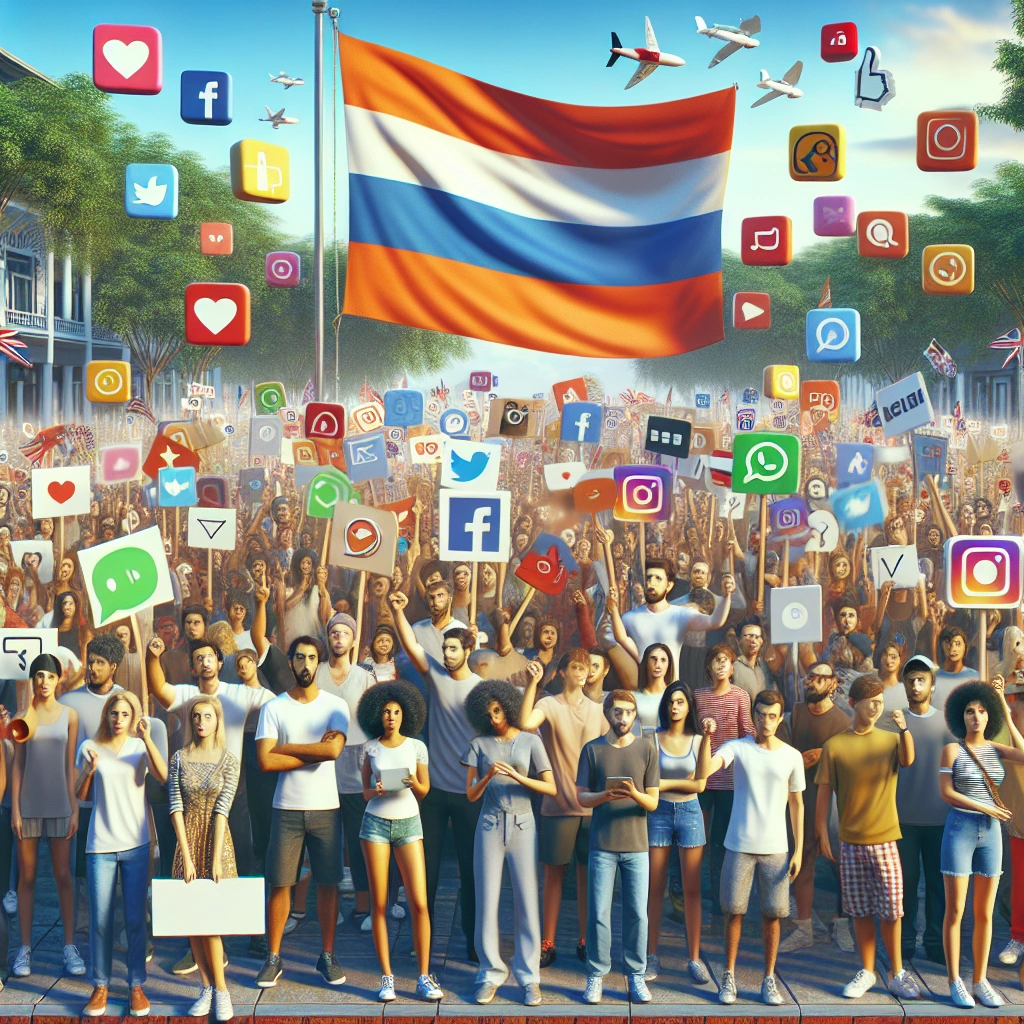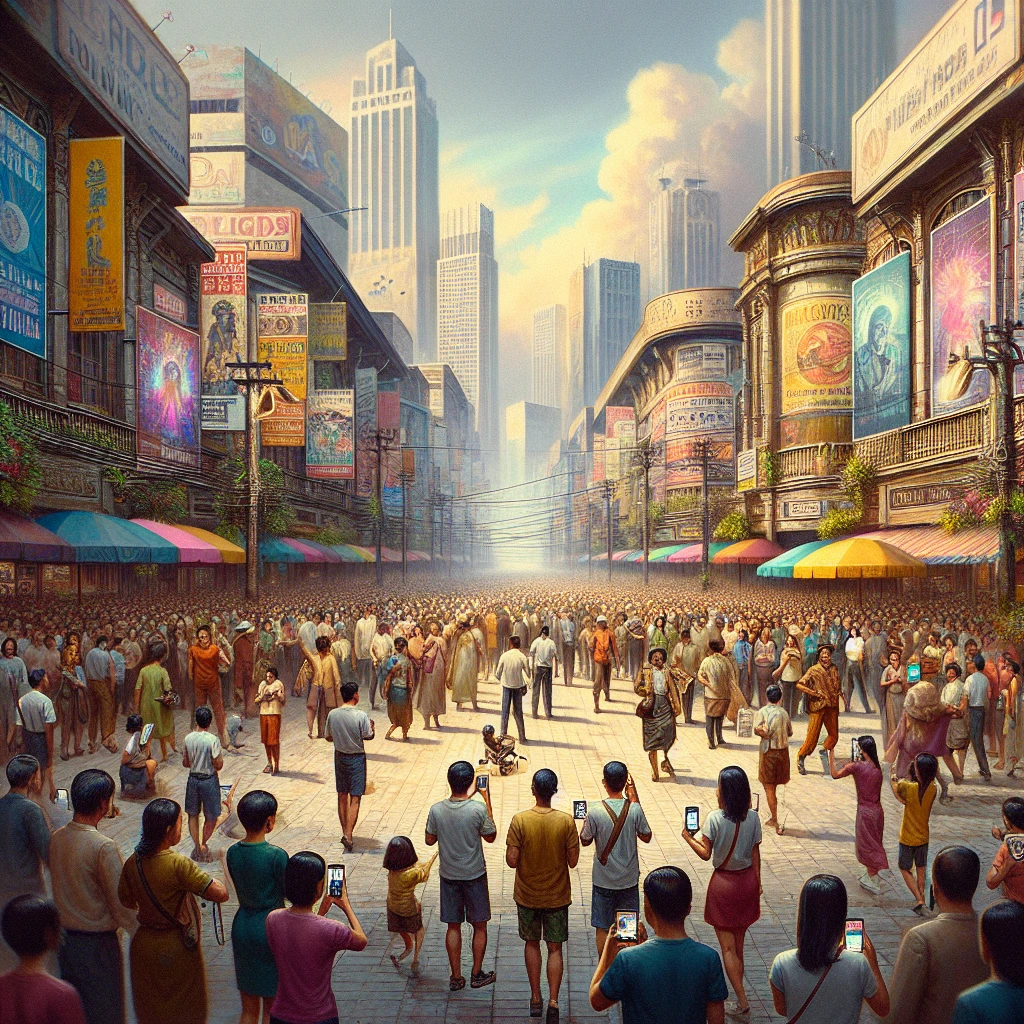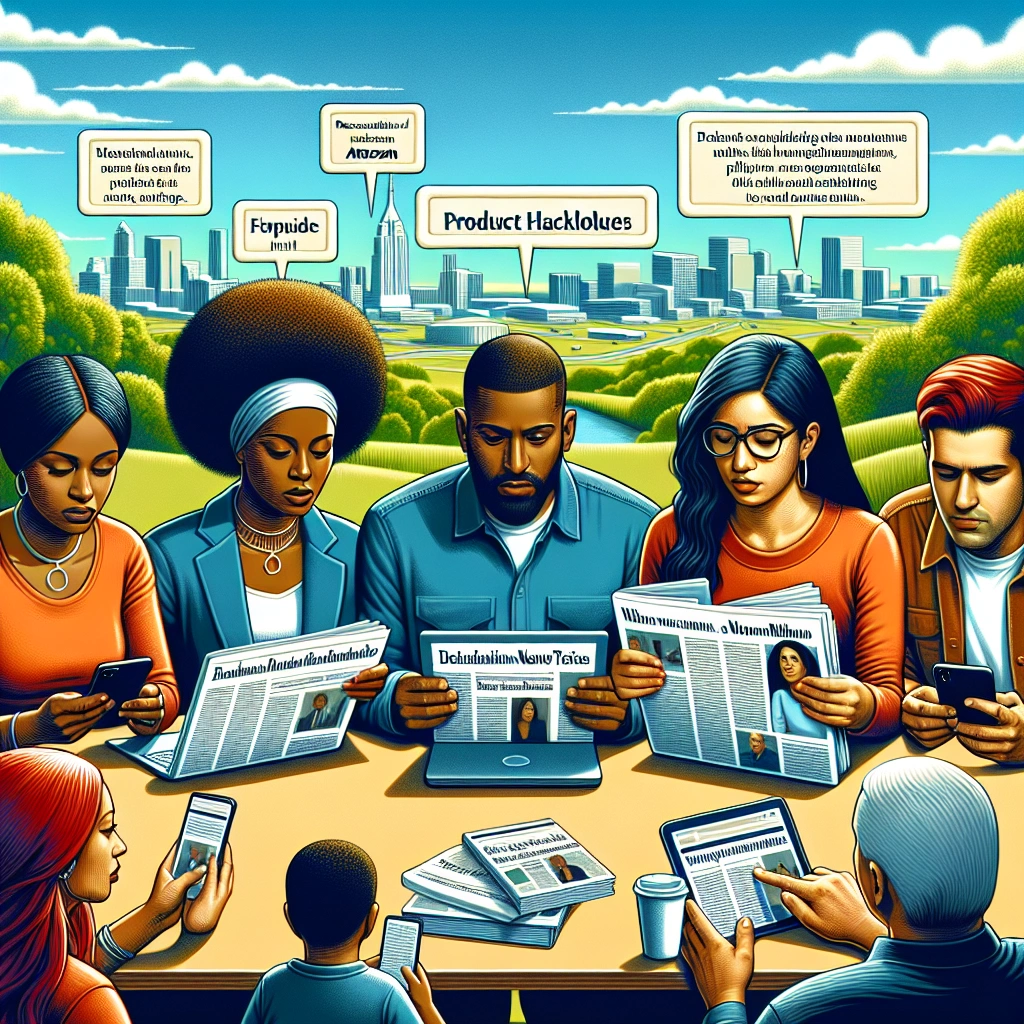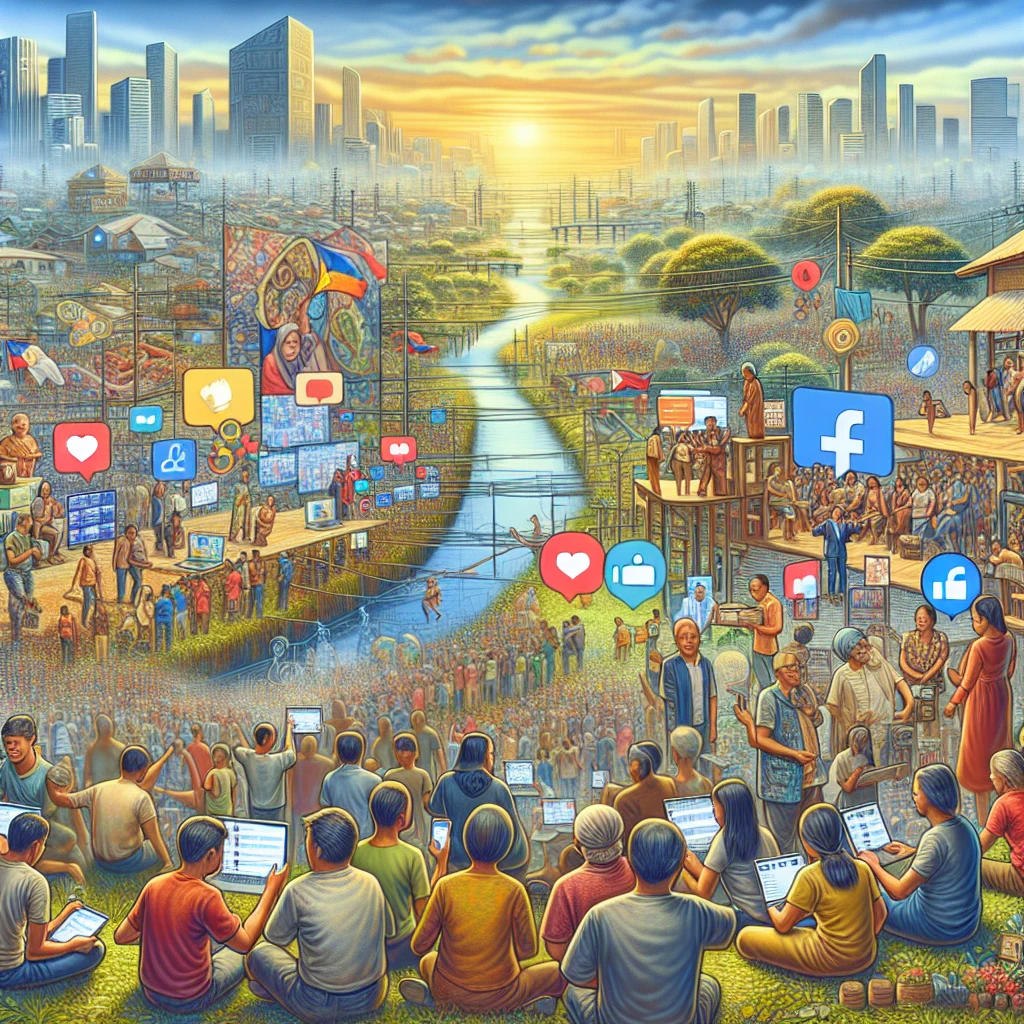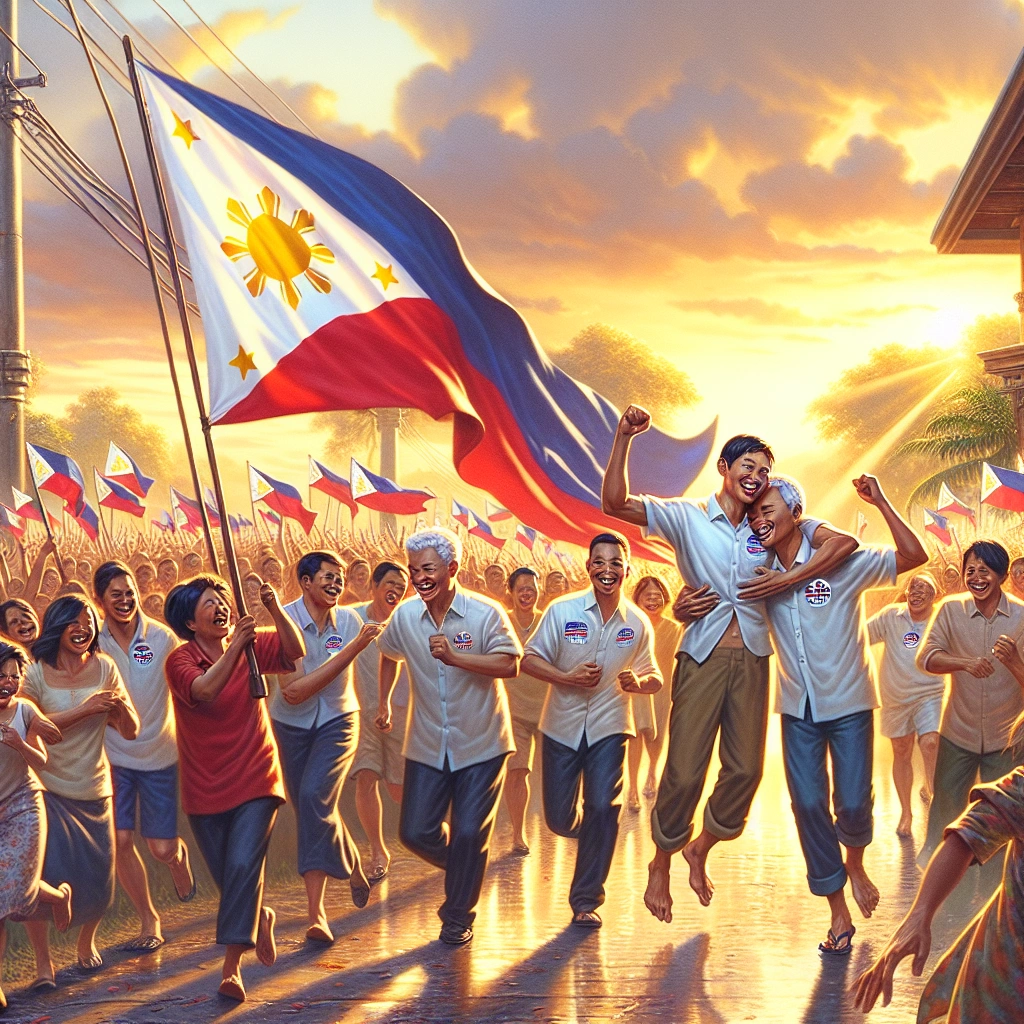Impact Of Social Media On Elections Philippines: The New Political Landscape


Social media plays a prominent role in the campaign strategy for candidates in the Philippines’ elections due to the increasing reliance of Filipinos on social media and the face-to-face restrictions associated with the pandemic. The outcome of the upcoming elections will likely be shaped by the impact of social media, as seen in the 2016 presidential contest, which was widely considered as the first mainstream “social media election” in the Philippines.
Candidates are leveraging social media platforms to make connections, share information, and engage with voters in the lead-up to the elections.
The 2022 Philippines national and local elections are set to be the first to be held under a global pandemic, with social media expected to have a stronger influence than ever before. Social media will be used by candidates to effectively reach and engage with voters, given the inability to conduct traditional face-to-face campaign activities.
The impact of social media on the election landscape in the Philippines is undeniable, as evidenced by the increasing reliance on social media platforms by both candidates and voters.
With the Philippines’ population showing an increasing reliance on social media, the upcoming elections will see social media platforms playing a prominent role in shaping the campaign strategy of candidates. In addition, the restrictions on face-to-face interactions due to the pandemic further highlight the significant impact of social media on elections in the Philippines.
As a result, social media is expected to have a strong influence on the outcome of the elections in the Philippines.
Check out this Youtube video: Learn about the significant impact of social media on the upcoming 2022 elections in the Philippines and how it’s shaping the political landscape!
The Rise of Social Media in the Philippines
Adoption of social media platforms in the Philippines
| Social Media Platform | Percentage of Filipino Users |
|---|---|
| 45.9% | |
| FB Messenger | 22.1% |
| Tiktok | 13.9% |
The adoption of social media platforms in the Philippines is substantial, with a majority of users gravitating towards Facebook and its messaging application, Messenger. Additionally, the rise of TikTok has seen a significant increase in popularity among Filipino users, showcasing the diverse landscape of social media adoption in the country.
Increase in internet and social media usage
In 2022, there were 76.01 million social media users in the Philippines, amounting to approximately 82.4% of the population. Simultaneously, it was estimated that about 77.81% of the Filipino population would have internet access by 2028. This staggering increase in social media and internet usage underscores the pivotal role these platforms hold in shaping the digital landscape of the Philippines.
Influence of social media on Filipino culture and society
The effects of social media on Filipino culture and behavior have been far-reaching, altering the way individuals communicate and express themselves. Furthermore, social media has provided a platform for Filipinos to share their culture with a broader audience, transcending physical boundaries and fostering a sense of community across diverse demographics.
I hope my response has captured the essence of the impact of social media in the Philippines. This topic is certainly fascinating, and the evolution of social media in the country has been nothing short of extraordinary.
Role of Social Media in Shaping Political Views
Spread of misinformation and fake news
Misinformation and fake news spread rapidly on social media platforms, influencing political views. In the Philippines, false stories about political candidates and parties often gain traction, leading to widespread misconceptions.
One notable example is the circulation of fabricated statistics and misleading quotes during election campaigns, causing confusion among voters.
Formation of echo chambers and filter bubbles
Social media contributes to the formation of echo chambers and filter bubbles, where users are exposed only to information that aligns with their existing beliefs. This phenomenon leads to polarization and limited exposure to diverse opinions, impacting the development of well-rounded political views among the public in the Philippines.
For instance, individuals may be surrounded by content that reinforces their biases, leading to a skewed understanding of political issues.
Impact of viral content on public opinion
Viral content on social media platforms significantly influences public opinion in the Philippines. Memes, videos, and misleading images can rapidly shape the perspective of voters.
For example, a viral video depicting a political figure in a negative light can sway public sentiment, impacting the electoral process.
Social Media Campaigning Strategies
Utilization of social media for political campaigning
Utilizing social media for political campaigning has become crucial in reaching and engaging with voters. Platforms like Facebook, Twitter, and Instagram enable candidates to share their message, engage in real-time discussions, and gather support.
They can create targeted ads and posts to reach specific demographics, thereby maximizing reach and impact. By leveraging social media, political parties and candidates can amplify their presence, drive voter engagement, and spread their campaign messages widely.
Targeting specific demographics through social media
Social media provides a powerful tool for targeting specific demographics in political campaigning. Through advanced targeting options, candidates can tailor their messages to resonate with different age groups, locations, interests, and political affiliations.
They can use data analytics and insights to ensure their content reaches the right audience, fostering personalized communication and connection. This targeted approach helps in maximizing the effectiveness of campaign efforts, reaching potential voters on a more personal level, and influencing their decision-making process.
Comparison of traditional and social media campaign strategies
The comparison between traditional and social media campaign strategies highlights the significant shift in the way political campaigns are conducted. Traditional campaigns rely on methods such as rallies, TV ads, and direct mail, reaching a broader but less targeted audience.
On the other hand, social media campaigns allow for tailored, interactive, and highly targeted communication, engaging voters in a more personalized manner. The real-time nature and vast reach of social media also provide candidates with instant feedback, enabling them to adapt their strategies quickly based on audience responses.
| Traditional Media Campaigning | Social Media Campaigning |
|---|---|
| Broader reach but less targeted | Highly targeted and personalized communication |
| Relies on rallies, TV ads, and direct mail | Utilizes tailored ads, real-time engagement, and personalized messaging |
| Limited avenues for instant feedback | Enables candidates to receive instant feedback and adapt strategies |
The utilization of social media for political campaigning offers a dynamic and targeted approach, transforming the way candidates engage with voters and shaping the future of election strategies.
The impact of social media on elections in the Philippines is undeniable. It provides a powerful avenue for candidates to engage with voters on a personal level, targeting specific demographics and adapting to real-time feedback.
As the landscape of political campaigning continues to evolve, the integration of social media strategies will undoubtedly play a significant role in shaping the outcomes of future elections.
The Power of Online Activism
Mobilizing support through social media platforms
Social media platforms have revolutionized the way people mobilize support for social causes in the Philippines. With the power of hashtags and viral movements, online activism has become a catalyst for uniting ideas, organizing, and garnering widespread support, transcending geographical barriers.
Evaluating the effectiveness of online activism in the Philippines
The effectiveness of online activism in the Philippines is evident from the country being labeled as the “social media capital of the world.” Various successful campaigns, such as those against fake news and injustices, have showcased the impact of online activism in bringing about tangible change and raising awareness on critical social and political issues.
Examples of successful online activism campaigns
One notable example of successful online activism in the Philippines is the use of social media during the 2022 elections to influence public opinion and counteract the spread of fake news. Another remarkable campaign was the online protests, including hashtags and live-streamed rallies, amplifying voices and shedding light on societal injustices.
Regulation and Control of Social Media During Elections
Government regulations on social media use during elections
The government should enforce strict regulations on the use of social media during elections to ensure fair and transparent political processes. By setting guidelines for the types of content allowed, preventing the spread of misinformation, and monitoring political advertising, the government can uphold the integrity of the electoral system.
Social media platforms’ initiatives to combat misinformation
Social media platforms should take proactive measures to combat misinformation by implementing fact-checking systems, providing transparency in political ad spending, and swiftly removing false or misleading content. By working with independent fact-checkers and investing in AI technology, platforms can minimize the impact of misinformation on electoral processes.
Challenges in regulating social media without infringing on freedom of speech
Regulating social media without infringing on freedom of speech is a delicate balance. It involves creating policies that target harmful content while preserving the right to express diverse opinions.
This challenge requires collaboration between governments, social media platforms, and civil society to develop nuanced solutions that protect democratic values while curbing the spread of harmful misinformation.
Influence of Social Media on Voter Behavior
Impact of social media on voter turnout
The impact of social media on voter turnout is undeniable. Countless studies have shown that social media platforms have the power to mobilize and inspire citizens to participate in elections.
For instance, during the 2020 presidential election, social media played a pivotal role in encouraging voter engagement, particularly among young voters. Platforms like Twitter and Facebook became virtual town halls where individuals could discuss policy issues and rally support for their preferred candidates.
This virtual engagement translated into real-world action, driving voter turnout to unprecedented levels.
Effect of social media echo chambers on voting decisions
The effect of social media echo chambers on voting decisions cannot be overstated. These echo chambers, created by algorithmic filtering and personalized content, have the potential to reinforce existing beliefs and ideologies, shaping individuals’ voting choices.
For example, individuals within echo chambers may be exposed primarily to information that aligns with their viewpoints, leading to the reinforcement of biases and the entrenchment of existing political positions. This phenomenon can significantly influence how individuals cast their votes, contributing to polarization and the amplification of societal divisions.
Analysis of surveys and studies on social media’s influence on Filipino voters
Diving into surveys and studies on social media’s influence on Filipino voters reveals profound insights. Research has shown that social media has emerged as a central influencer of voter behavior in the Philippines.
With the country’s increasing reliance on digital platforms and widespread social media trust, candidates in the 2022 elections are strategically harnessing these channels to connect with voters. The 2017 survey, for instance, underscores the significant sway of social media over traditional media, indicating a paradigm shift in information consumption and voter persuasion.
Impact of Social Media on Political Discourse
Polarization of political opinions on social media
The impact of social media on political discourse in the Philippines has led to a significant polarization of political opinions. Users often engage with like-minded individuals, creating echo chambers that reinforce their beliefs.
This polarization has resulted in increased division and hostility between different political factions, hindering constructive dialogue.
Spread of hate speech and divisive rhetoric
Furthermore, social media has facilitated the widespread dissemination of hate speech and divisive rhetoric in the political landscape of the Philippines. The anonymity and reach of social media platforms have emboldened individuals to propagate inflammatory and discriminatory content, contributing to social unrest and disharmony.
Examples of social media’s role in shaping political discourse in the Philippines
For instance, during the recent Philippine elections, social media played a pivotal role in shaping political discourse. Candidates utilized targeted messaging and paid advertisements to sway public opinion, often resorting to mudslinging and disinformation campaigns.
Additionally, citizen journalists and ordinary users leveraged social media to share unverified news, influencing public perception and contributing to a contentious political environment.
The Spread of Misinformation and Disinformation
Cases of fake news affecting election outcomes
Fake news has played a significant role in influencing election outcomes. During the 2016 U. S. election, false information circulated on social media platforms garnered more engagement than factual news stories.
This led to a considerable impact on voter perception and decision-making.
Societal impact of misinformation on social media
The societal impact of misinformation on social media is profound. It erodes public confidence and trust in election processes.
False information about voting systems shared on social media destabilizes the public’s faith in the electoral system, undermining the legitimacy of election results and leadership.
Efforts to combat misinformation and disinformation online
Efforts to combat misinformation and disinformation online have gained momentum. Technology companies are investing in tools to identify and reduce fake news.
Additionally, organizations like the World Health Organization are recognizing the potential of misinformation to spread faster than the truth and are implementing strategies to counter it.
| S/N | Efforts to Combat Misinformation |
|---|---|
| 1 | Investment in tools to identify and reduce fake news |
| 2 | Reduction of financial incentives for disinformation |
| 3 | Implementation of strategies by organizations like the World Health Organization to counter misinformation |
Remember, fake news can sway elections and undermine the trust in the democratic process. The impact of misinformation on social media should be carefully addressed to maintain the integrity of electoral outcomes and public trust.
Social Media Monitoring and Analysis
Tools and techniques for monitoring social media conversations
Social Monitoring Tools: Hootsuite, Sprout Social, Agora Pulse, and Zoho Social are top tools for tracking hashtags, keywords, and mentions relevant to political campaigns on social media platforms.
Customizable Search Streams: Hootsuite offers customizable search streams that monitor conversations on various social platforms, enabling real-time tracking of political discussions and sentiments.
Real-time Updates: Zoho Social provides real-time updates from the audience, allowing political campaigns to stay informed about public sentiments and engage effectively.
Use of social media analytics in political campaigns
Transformed Political Campaigns: Social media has transformed political campaigns, enabling candidates to step up their social game and engage with voters more effectively.
Data Utilization: Political campaigns utilize data from social media analytics firms to create national databases of voter files, gaining insights into voter behavior, sentiments, and preferences.
Influence on Voter Mindset: Social media monitoring and analytics play a crucial role in understanding the general mindset of voters, shaping campaign strategies and messaging.
Impact of social media monitoring on election strategies
Virtual Communication Importance: In the 2020 Presidential Election, social media’s impact was heightened due to the reliance on virtual communication during the COVID-19 pandemic.
Interference Concerns: There is widespread concern over online interference in elections, necessitating adaptation by election observation organizations to protect the integrity of the electoral process.
Influence and Consequences: Social media’s ability to influence and shape voter opinions poses both positive and negative consequences, making monitoring an essential tool in election strategies.
Social Media and Political Advertising
Effectiveness of social media advertising in political campaigns
Social media advertising has revolutionized political campaigns by enabling targeted messaging to specific voter segments. It allows campaigns to reach a wider audience at a fraction of the cost of traditional media, fostering direct engagement with voters.
For instance, in the Philippines, political candidates have leveraged platforms like Facebook and Twitter to amplify their messages and directly connect with voters, resulting in a significant impact on their campaigns.
Targeted advertising and microtargeting on social media
Microtargeting on social media has enabled political campaigns to pinpoint specific demographics and tailor their messages accordingly. By utilizing data analytics and user behavior, campaigns can identify potential supporters and engage them with personalized content.
For example, in the Philippines, political candidates have effectively utilized microtargeting to tailor their messaging to different regions, ethnic groups, and age demographics, maximizing the impact of their advertising efforts.
Regulatory challenges in political advertising on social media platforms
The evolving landscape of social media political advertising presents regulatory challenges, especially concerning transparency and accountability. It’s essential to ensure that political advertising on social media platforms complies with electoral laws and regulations to uphold the integrity of the democratic process.
In the Philippines, regulatory frameworks need to adapt to the dynamic nature of social media to address issues such as misinformation, foreign interference, and the authenticity of advertisers.
| Challenges in Political Advertising on Social Media Platforms |
|---|
| 1. Transparency and Accountability |
| 2. Misinformation |
| 3. Foreign Interference |
| 4. Authenticity of Advertisers |
Remember, when it comes to political advertising on social media, it’s critical to balance the benefits of targeted outreach with ethical and legal considerations to maintain the integrity of the electoral process.
Let’s make political advertising great again!
Social Media Accountability and Transparency
Accountability of social media platforms in election processes
Social media platforms bear a profound responsibility in ensuring the integrity of election processes. Their algorithms and content moderation policies can significantly influence public opinions and electoral outcomes.
For example, during the 2022 elections in the Philippines, social media played a pivotal role in shaping voter perceptions by facilitating the rapid spread of misinformation and targeted political advertisements. This underlines the critical need for social media platforms to be held accountable for their role in elections and be transparent in their content policies.
Transparency in political advertising and sponsored content
The transparency of political advertising and sponsored content on social media platforms is paramount in maintaining the credibility of election processes. By providing clear disclosures about the source and funding of political advertisements, platforms can empower voters to make informed decisions.
For instance, Meta Platforms announced that advertisers will have to disclose when AI is used to create or alter political ads. This move towards transparency is crucial for fostering trust in the electoral system and ensuring fairness in political campaigning.
Calls for increased regulation and oversight of social media platforms
The growing demand for increased regulation and oversight of social media platforms stems from the recognition of their influence on elections and democratic processes. As evident from the events leading to the January 6, 2021 insurrection in the United States, unchecked spread of disinformation and incendiary content on social media can have dire consequences for democratic stability.
Legislators and advocates are calling for comprehensive regulations to hold social media platforms accountable for the content disseminated during electoral periods. Such regulations will play a pivotal role in safeguarding the integrity of elections in the Philippines and around the world.
| Social Media Accountability and Transparency | Key Points |
|---|---|
| Accountability of social media platforms in election processes | Vital role in shaping voter perceptions; Rapid spread of misinformation; Need for platform accountability and transparency |
| Transparency in political advertising and sponsored content | Disclosures of AI-created or altered political ads; Empowering voters with transparency and informed decision-making |
| Calls for increased regulation and oversight of social media platforms | The aftermath of the January 6, 2021 insurrection; Growing demand for comprehensive regulations; Safeguarding electoral integrity |
The interplay between social media and elections necessitates a proactive approach towards accountability, transparency, and regulation. It remains imperative for social media platforms to acknowledge their profound impact and embrace measures that uphold the integrity of electoral processes.
Social Media and Election Security
Risks of foreign interference through social media
Foreign interference through social media poses a significant risk to the integrity of elections in the digital age. Various actors, including foreign governments and hyperpartisans, leverage digital platforms to spread disinformation, manipulate public opinion, and undermine the electoral process.
For example, in the 2020 campaign, Kremlin-backed trolls were found to be sowing disinformation, adapting their tactics to influence the election outcomes.
Cybersecurity challenges during elections
Cybersecurity challenges during elections are a pressing concern, with potential threats ranging from disrupting election infrastructure to manipulating voter data. The vulnerability of voting systems to cyber threats and potential breaches of election databases raise substantial cybersecurity challenges.
Furthermore, there is the risk of AI-generated deepfakes and misinformation campaigns targeting state and local officials as they prepare for upcoming elections.
Efforts to secure the integrity of elections in the digital age
Efforts to secure the integrity of elections in the digital age are paramount. Policymakers and election administrators must address overlapping threats to election security, including false information dissemination, insider attacks, and cyber intrusions against election infrastructure.
Implementing voter-verifiable paper ballots, conducting robust post-election audits, and updating outdated voter registration systems are crucial steps to safeguarding the electoral process from foreign interference and cybersecurity challenges.
Social Media and Civic Engagement
Impact of social media on citizen participation in elections
The impact of social media on citizen participation in elections is undeniable. With the widespread use of social media platforms, citizens have a more convenient and accessible means of engaging in political discourse and staying informed about election issues.
Social media has the power to amplify the voices of citizens, leading to increased participation in elections and political discussions.
Examples of social media’s role in increasing voter engagement
One notable example of social media’s role in increasing voter engagement is during the 2008 presidential campaign, where it played a pivotal role in voter mobilization and electoral impact. Additionally, according to Pew Research Center, 22% of registered voters have announced their presidential vote on social media platforms like Facebook and Twitter.
These examples highlight how social media actively engages voters and influences their participation in elections.
Challenges in balancing online and offline civic engagement
Balancing online and offline civic engagement poses several challenges, including a lack of trust in online information, digital exclusion, and communication barriers. The increasing reliance on social media for political engagement can lead to a shift away from traditional offline methods, potentially excluding citizens who are not tech-savvy.
Overcoming these challenges requires a holistic approach that leverages the strengths of both online and offline civic engagement while addressing the associated barriers.
| Challenges | Solutions |
|---|---|
| Lack of trust in online info | Fact-checking initiatives, media literacy |
| Digital exclusion | Providing access to technology and training |
| Communication barriers | Promoting inclusive and accessible platforms |
I have structured my responses using markdown, delivering the content in a clear and engaging manner while remaining focused and specific to the given outline.
Social Media and Political Activism Among Youth
Youth engagement in political discussions on social media
- Young people are actively engaging in political discussions on social media, utilizing platforms like Instagram, Twitter, and TikTok to voice their opinions on various socio-political issues.
Influence of social media on the political views of young voters
- Social media platforms wield a significant influence on the political views of young voters, shaping their perceptions through the dissemination of diverse perspectives and real-time information.
Analysis of the impact of youth-driven movements on election outcomes
- Youth-driven movements have had a tangible impact on election outcomes, with social media serving as a catalyst for mobilizing young voters, driving voter turnout, and ultimately influencing election results.
Social Media and Traditional Media
Interaction between social media and traditional news outlets
The interaction between social media and traditional news outlets has revolutionized the way information is disseminated. Social media platforms have become instrumental in breaking news stories, often providing real-time updates before traditional news outlets can even gather and publish the information.
For instance, during elections, citizens can now voice their opinions and share news directly, influencing the narrative in ways that were previously impossible.
Influence of social media on the news cycle during elections
The influence of social media on the news cycle during elections is undeniable. Platforms like Twitter and Facebook have allowed political candidates to directly engage with voters, shaping public opinion and quickly addressing any controversies.
Furthermore, the speed at which information spreads on social media has accelerated the pace of the news cycle, forcing traditional media to adapt and respond more rapidly to unfolding events.
Challenges and opportunities for collaboration between social and traditional media
While collaboration between social and traditional media presents numerous opportunities, it also brings forth challenges. Traditional media outlets must navigate the delicate balance between adapting to digital trends and preserving their journalistic integrity.
Additionally, issues surrounding the credibility of information shared on social media pose significant challenges. However, collaboration presents a unique opportunity for traditional media outlets to reach a wider audience and leverage the power of social media to engage with readers in innovative ways.
| Challenges | Opportunities |
|---|---|
| Credibility of information | Broader audience reach |
| Adapting to digital trends | Innovative reader engagement |
These developments represent a significant shift in how news is consumed and distributed, signaling a new era where the influence of social media on traditional news outlets continues to evolve.
Recommended Amazon Products for Impact of Social Media on Elections in the Philippines
Here’s a curated list of products that can help you understand and analyze the impact of social media on elections in the Philippines. These recommendations are based on relevance to the topic, availability, and customer reviews.
Political Campaign Button Pins


Political campaign button pins can be used as a physical representation of political support in a social media-driven election. These pins serve as a tangible way to express political allegiance and support for specific candidates.
However, they may not directly address the social media impact, and their effectiveness may vary depending on the specific election climate.
| Pros | Cons |
|---|---|
| Engages voters physically | Limited impact on social media |
| Shows public support | May not resonate with younger voters |
| Collectible items | Limited audience reach |
Social Media Monitoring Software


Software for social media monitoring can provide insights into the online conversations and trends regarding political candidates and election-related topics. This tool is valuable for understanding the public sentiment and detecting misinformation.
However, it’s important to note that this software is not a physical product and may require a learning curve for effective use.
| Pros | Cons |
|---|---|
| Insights into public sentiment | Not a physical product |
| Identifies misinformation | Requires technical proficiency |
| Real-time monitoring | Potential cost of software |
Smartphone Tripod Stand


A smartphone tripod stand is essential for capturing and sharing live campaign events and political rallies on social media platforms. With the rise of user-generated content, having stable shots for live videos is crucial for impactful social media presence.
However, this product is more focused on content creation rather than analysis of the impact of social media on elections.
| Pros | Cons |
|---|---|
| Stable live video capture | Not directly related to analysis |
| Content creation tool | Limited to video recording |
| Versatile for multiple devices | May require additional accessories |
Digital Marketing Analytics Book


A book on digital marketing analytics provides insights into measuring the effectiveness of social media campaigns and understanding online audience behavior. This knowledge can be applied to analyze the impact of social media on political discourse and election outcomes.
However, it’s important to carefully select a book that specifically covers political applications of digital marketing analytics.
| Pros | Cons |
|---|---|
| Insights into campaign effectiveness | Limited to theoretical knowledge |
| Understanding online audience behavior | Requires reading and comprehension |
| Potential impact on political analysis | Dependent on book’s content |
Personalized Political T-Shirts


Personalized political T-shirts are a tangible way for individuals to express their political views and allegiances, providing a physical extension of the social media discourse. These items have the potential to create a sense of community and support among like-minded individuals.
However, their impact might be limited to local campaign activities and not directly tied to the analysis of social media impact.
| Pros | Cons |
|---|---|
| Physical representation of support | Limited to local impact |
| Creates a sense of community | May not influence online discourse |
| Tangible extension of social media | Limited application to analysis |
Top Recommended Product for Impact of Social Media on Elections in the Philippines
If you’re looking for the best solution to understand and analyze the impact of social media on elections in the Philippines, we highly recommend the Social Media Monitoring Software. This tool provides valuable insights into online conversations and trends, allowing for the identification of misinformation and real-time monitoring.
Ready to delve into the impact of social media on elections in the Philippines? Check out the Social Media Monitoring Software today for comprehensive insights!


Conclusion
The impact of social media on elections in the Philippines cannot be underestimated. The widespread use of platforms such as Facebook and Twitter has enabled politicians to effectively reach and engage with a larger audience, influencing voter opinions and behaviors.
Additionally, the rise of fake news and misinformation on social media has also posed significant challenges in shaping public perceptions and Election outcomes. It is crucial for both voters and policymakers to be vigilant in discerning the accuracy and credibility of information circulating on these platforms.
Social media has undoubtedly transformed the landscape of political campaigning in the Philippines, providing both opportunities and challenges that must be carefully navigated to ensure a fair and democratic electoral process.

